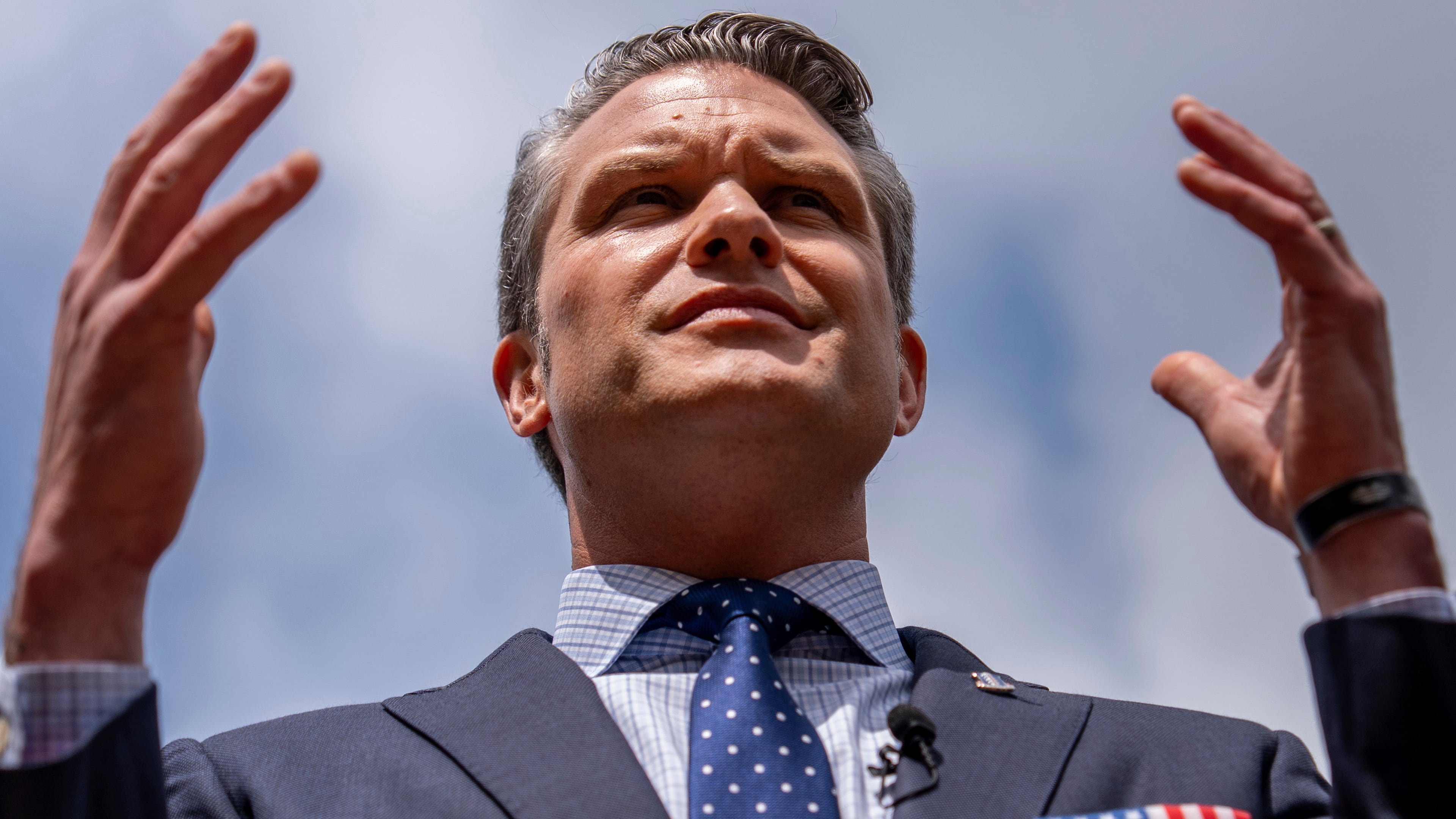A new policy on access at the Pentagon has journalists and the Trump administration at odds

Journalists who cover the Pentagon and the Trump admnistration are in a standoff about new rules that limit the access of the media to most areas within the Pentagon and appear to condition overall entry to the building on an agreement to restrictions in reporting.
Defense Secretary Pete Hegseth's team characterizes the changes as an effort to protect national security and the safety of those who work at the Pentagon, while many in the press see it as an effort to exert control and avoid embarrassing stories.
Journalists who want to hold on to badges that permit access to the Pentagon were told on Sept. 19 they must sign a letter acknowledging the new rules by this Tuesday or the badge “will be revoked.” The new policy says that Defense Department information “must be approved for public release by an appropriate authorizing official before it is released, even if unclassified.” Classified material faces even tighter restrictions.
That level of control immediately alarmed journalists and their advocates.
“Asking independent journalists to submit to these kinds of restrictions is at stark odds with the constitutional protections of a free press in a democracy, and a continued attempt to throttle the public's right to understand what their government is doing,” said Charles Stadtlander, spokesman for The New York Times.
Dispute over what the new rules actually mean
In a subsequent letter to the Reporters Committee for Freedom of the Press, Hegseth aide Sean Parnell suggested that journalists misunderstood some of the new rules. He said, for example, that the restriction against releasing unclassified information is the policy that Pentagon officials must follow — not something the journalists must abide by.
“It should come as no surprise that the mainstream media is once again misrepresenting the Pentagon's press procedures,” Parnell said in a post on X. “Let's be absolutely clear: Journalists are not required to clear their stories with us. That claim is a lie.”
However, the new policy says that journalists who encourage Pentagon officials to break the rules — in other words, ask sources for information — could be subject to losing their building access.
While it appeared that Parnell sought to soften some of the hard edges of his policy in response to questions raised by the reporters' committee, there's still enough confusion to merit a meeting to clear things up, said Grayson Clary, a lawyer for RCFP. There's some wariness among news organizations about what they would be agreeing to if they sign the letter, and it's not clear how many people — if any — have done so.
The new rules continue a tense relationship between the press and the Hegseth team, which had already evicted some news outlets from their regular workspaces in favor of friendlier outlets and limited the ability of reporters to roam around the Pentagon. Hegseth and Parnell seldom hold press briefings.
Parnell did not respond to a request for comment by The Associated Press.
To one editor, it's all about control
“It's control, just 100% control,” said Jeffrey Goldberg, editor-in-chief of The Atlantic magazine. Goldberg, who is not stationed at the Pentagon, wrote the most embarrassing story of Hegseth's tenure so far when he was inadvertently included in a Signal group chat where Hegseth and other national officials discussed an imminent attack on Houthis in Yemen. The brouhaha became widely known as “Signalgate.”
Pentagon leadership was also reportedly unhappy over a story that said Elon Musk was to get a briefing on military strategy for China, leading President Donald Trump to stop it, and other stories about initial assessments of damage in the military strike against Iran.
No American reporter accredited to the Pentagon that he knows is interested in subverting national security or putting anyone in the military in harm's way, Goldberg said.
In his own case, Goldberg did not report on what he learned until after the attack was over. He said he contacted officials in the group chat to ask if there was anything he learned that was harmful to the country in any way. He did not include in his story the name of a CIA official mentioned in the messages who was technically still undercover, he said.
“The only people in Signalgate who were putting American troops in harm's way were the national leadership of the United States by discussing on a commercial messaging app the launch times of strikes on a hostile country,” he said.
Access to officials in the Pentagon has been invaluable in helping reporters understand what is going on, said Dana Priest, a longtime national security reporter at The Washington Post who is now a journalism professor at the University of Maryland. With the exception of a few areas, reporters are not permitted under the new rules to walk through the Pentagon without an official escort.
Priest said the corridors of the Pentagon were like areas around Congress where reporters buttonhole politicians. Priest recalled staking out military officials waiting for them to come out of a bathroom.
“They know the goal of the media is to get around the official gobbledygook and get out the truth,” Priest said. “They may not help you. But some of them want to help Americans know what is going on.”
Experienced national security reporters know there are many ways to get information, including through other channels of government and people in the private sector. “The Pentagon is always very well versed in the advantages of controlling the story, so they always try to do that,” she said. “The reporters know that. They've known that for decades.”
Is there any room for common ground between the Pentagon and reporters?
Reporters who don’t follow the new rules won’t necessarily be expelled immediately, Parnell told the reporter’s committee. But access will be determined by Hegseth’s team.
While reporters already stationed in the Pentagon were given until Sept. 30 to sign, they were allowed to request an additional five days for legal review.
Although the Times, Washington Post and Atlantic all put out statements against the Pentagon's plan, none of the publications would say what they have recommended that their reporters do — perhaps an indication that they consider negotiations potentially fruitful.
President Donald Trump hasn't hesitated to fight the media when he thinks he's been wronged, launching lawsuits against CBS News, ABC News, The Wall Street Journal and the Times. Yet he's also frequently accessible to the press, more so than many of his predecessors, and there has been some uncertainty in the White House about the Pentagon's policy.
When a reporter asked, “should the Pentagon be in charge of deciding what reporters can report on?” the president replied, “No, I don't think so. Listen, nothing stops reporters. You know that.”
Goldberg noted that it's more than just an issue for reporters. “The American people have a right to know what the world's most powerful military does in their name and with their money,” he said. “That seems fairly obvious to me.”
___
David Bauder writes about the intersection of media and entertainment for the AP. Follow him at http://x.com/dbauder and https://bsky.app/profile/dbauder.bsky.social
More Stories
The Latest

